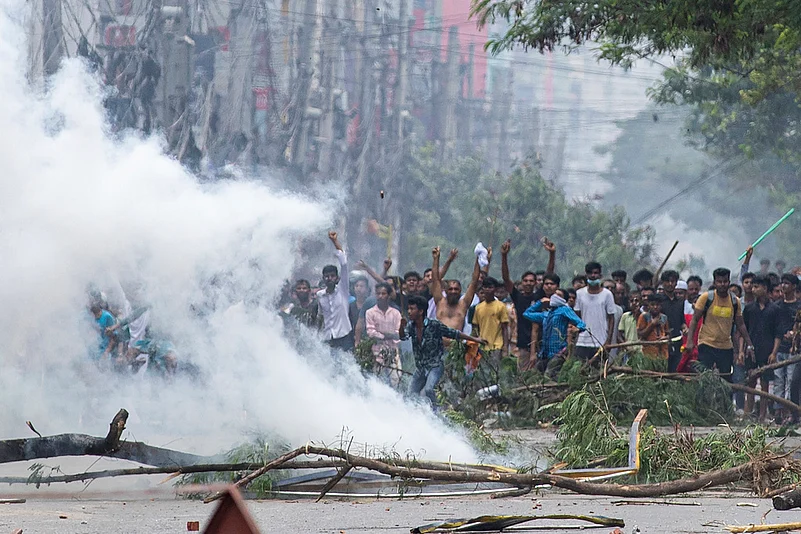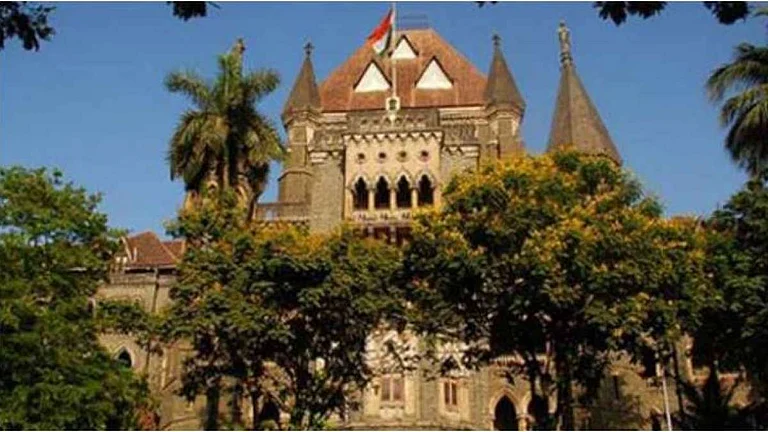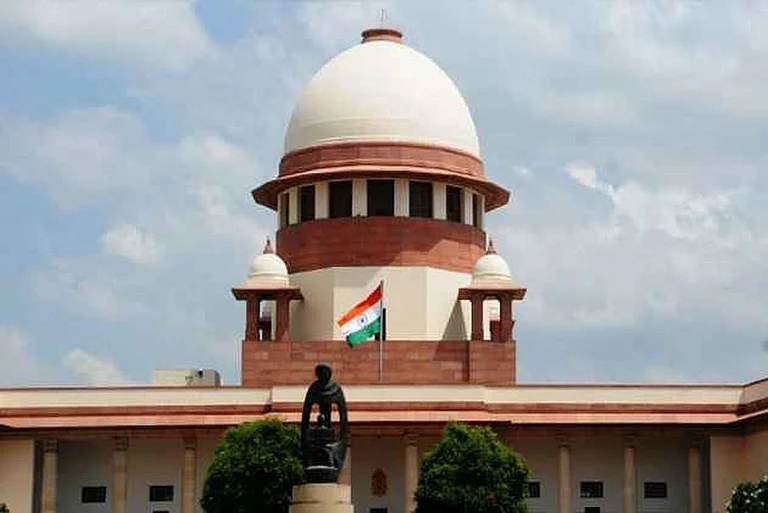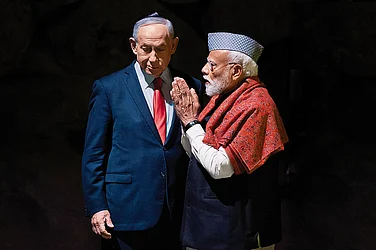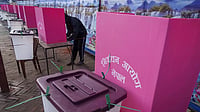Bangladesh on Tuesday observed a national day of mourning for the 150 people killed in the recent anti-government violence, amid calls for the unconditional release of six coordinators of the quota reform movement within 24 hours.
It was on Monday that the Bangladesh government, for the first time, officially acknowledged that 150 people were killed across the country during the students’ unrest over the quota system.
Nationwide mourning was observed today recalling those who were killed during the quota reform movement. On this day, black badges were worn and prayers were organised in all mosques. Besides, special prayers will be offered in all temples, churches and pagodas across the country, media reports said.
Violence gripped Bangladesh for days when the protests that had started in universities and colleges, quickly turned into a widespread agitation against Prime Minister Sheikh Hasina and her government’s policies. The government called in the army to quell protests against job quotas after the unrest left several thousand people, including policemen, wounded and major government installations damaged.
While unofficial media reports claimed more than 180 deaths during the violence, including in police and army action, the government finally acknowledged that there were 150 people killed.
Cabinet Secretary Mahbub Hossain on Monday announced the government's decision to hold a day of mourning and urged the people to wear black badges to mourn the deaths.
On Tuesday, several eminent civil society members demanded the unconditional release of six coordinators of the quota reform movement, currently in the custody of the Dhaka Metropolitan Police's Detective Branch, within 24 hours.
Transparency International Bangladesh Executive Director Iftekharuzzaman made this demand at a press conference at the Dhaka Reporters Unity on Tuesday on behalf of civil society.
During the press briefing, the civil society members raised their 11-point demand, which included a full list of those killed during the quota reform movement, a transparent investigation into the killings under the supervision of high-level UN experts and punishment for the culprits.
People, especially students, opposing the government's decision disagreed and disregarded the appeal and showcased red colour prominently on their social media profiles.
One user Tamanna (@_PinkieFlamingo) on X posted with a prominent red square and said: “Why is our profile red? Because today the government of Bangladesh has announced mourning day, but ordinary students are rejecting it and giving a red profile as an expression.”
She added several hashtags such as #JulyMassacre #RedForJustice #StandAgainstInhumanity #StandRedForStudents and #BloodOnTheirHands.
The month-long protests subsided after the apex Appellate Division of unitary Bangladesh’s Supreme Court on July 21 ordered a massive quota reform, keeping only seven per cent of reserve posts instead of the existing 56 per cent and the government subsequently issued a Gazette notification in line with the order. That keeps 93 per cent of jobs open to candidates on merit.
Meanwhile, all public and private offices will resume their operations as per their normal schedule from Wednesday, The Daily Star newspaper quoted the Ministry of Public Administration as saying.
Following the widespread violence linked to the quota reform movement, the government imposed a curfew beginning at midnight on Friday, July 19. Following the curfew, a general holiday was declared on July 21, 22, and 23.


